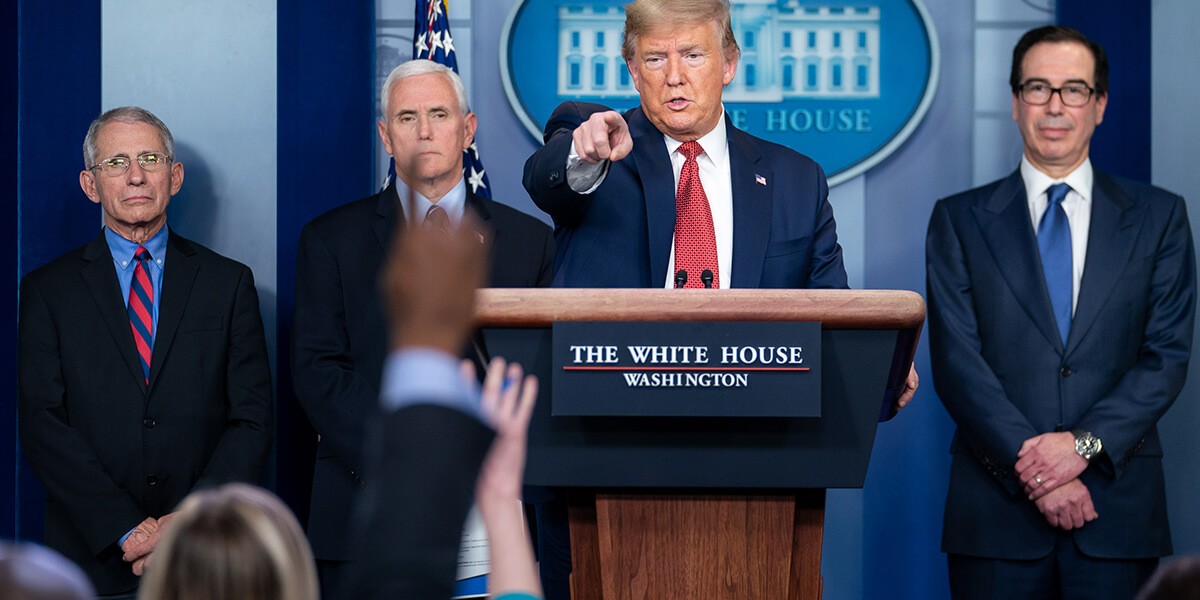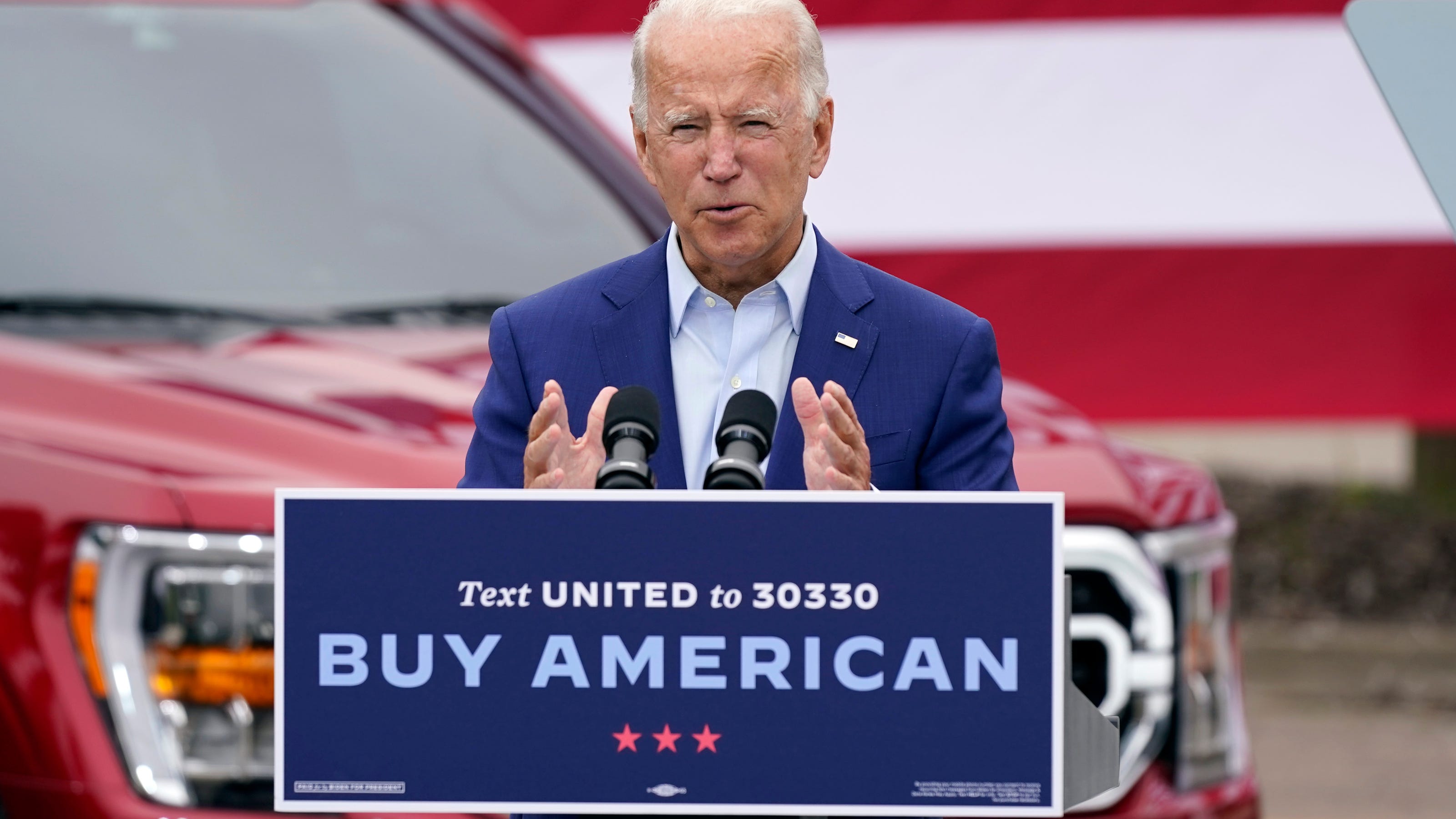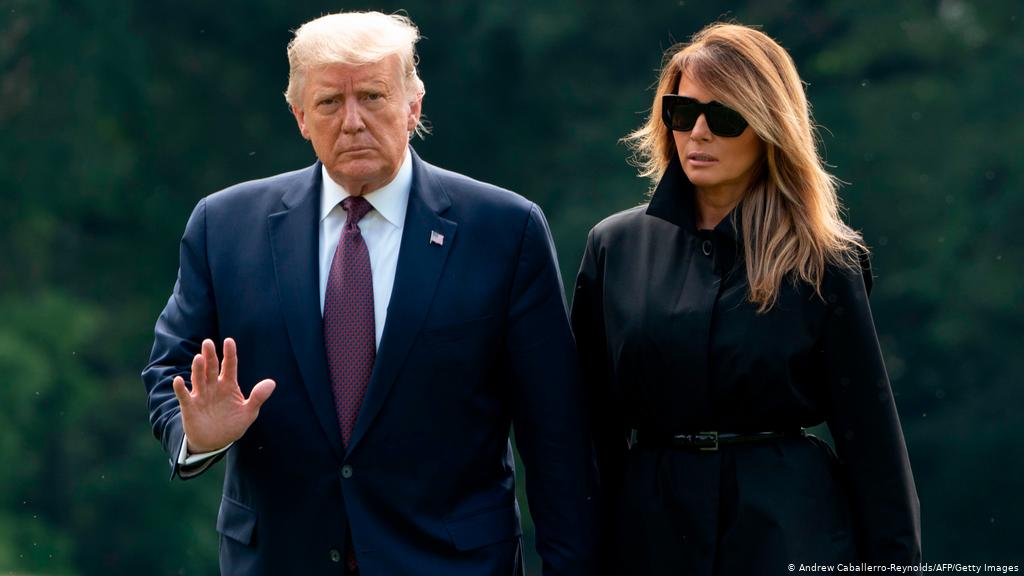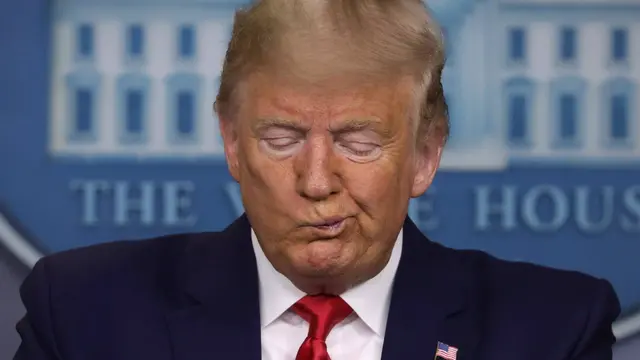Editor's Note:
The writer, Mr. I. Hussain Janjua is a senior media professional and analyst having experience of research & broadcast journalism in different organisations. He is a non-resident fellow of Chengdu Institute of World Affairs (CIWA). (Email: [email protected]; twitter: @ihussainjanjua)
Just about a month before the presidential election, Donald Trump has tested positive for Covid-19. Given his age, 74, he is in a high-risk category for complications from the disease. The initial implications are obvious. The president's rigorous campaign schedule - which included visits to Minnesota, Pennsylvania, Virginia, Georgia, Florida and North Carolina in just the past week - is on indefinite hold.
Even the next presidential debate, a town hall format with audience questions scheduled for 15 October in Miami, Florida, is in doubt. Perhaps the event could be conducted via video-conference, but that will largely depend on Trump's health.
The pandemic and resulting economic disruption, the nationwide demonstrations against institutional racism and police brutality following George Floyd's death and sometimes violent unrest in several major US cities, countless smaller crises and controversies have been the highlights during the Trump years.
The public has already given the president low marks for his handling of the coronavirus pandemic, so anything that puts the focus on the disease is potentially damaging for his re-election prospects. Complicating matters for the president will be that many Americans might recall what many would describe as the president's sometimes cavalier attitude toward Covid-19.

The president has, at times, stressed the importance of social distancing and taking the virus seriously, he has also trafficked in questionable science. He said the virus would disappear "like magic"; and attacked state officials who have imposed more aggressive mitigation measures and been slower to reopen businesses and schools than he would like.
Trump's coronavirus infection will cast all of these past comments into sharp relief - once again raising questions about whether he took the pandemic seriously enough both on a national policy level and within the White House itself, where the president's health and safety must, for the nation's sake, be of paramount concern.
During times of national turmoil, the American administration will face hard questions about the virus as so far more than 200,000 Americans have died of Covid-19 as the US tops the list of the most Coronavirus affected countries.
The Biden campaign will also face a challenge on how to respond. For months the Democratic nominee has kept a lower profile in order to limit his risk of exposure - and has been mocked by Republicans, including the president himself, for "hiding" in the basement of his Delaware home.

Trump is not the first world leader to contract the coronavirus. Brazilian President Jair Bolsonaro was infected and recovered and British Prime Minister Boris Johnson ended up in an intensive care unit after contracting COVID-19 and eventually made a full recovery. But as the New York Times notes, it can be disruptive when a leader is sick and isolated.
Britain’s experience shows that even in a country with a well-organized political system, a leader’s sudden illness can be deeply unsettling. When Mr Johnson contracted the virus in March, the government was adrift for several days while he struggled to keep leading the response to the pandemic, via Zoom calls, from isolation in his official residence on Downing Street.
If Trump is hospitalized or incapacitated, he could invoke the 25th amendment to the United States Constitution and temporarily transfer power to Vice President Mike Pence and assume power once healthy again. This has happened three times since the amendment came into force in 1967. President Ronald Reagan invoked it for eight hours in 1985 during a medical procedure and George W. Bush handed power to his vice president twice for approximately two hours while undergoing colonoscopies in 2002 and 2007.

The political uncertainty could further disrupt whatever economic recovery was underway as public confidence plummets and businesses again brace for a drop in revenue.
Concerns about contracting the virus, sharpened by the president's diagnosis, could encourage more Americans to shift to mail-in balloting instead of in-person voting, causing delays in reporting the election results. In case of close competition, the potential for a protracted legal fight over who won could increase.
At this point, there is no serious talk of altering the election schedule, which would require an act of Congress passed by both the Democratic-controlled House of Representatives and the Republican-held Senate. In fact, in some states, early voting has already begun.
With less than a month left until the US presidential election, contracting the virus could have both politically positive or negative consequences for President Donald Trump. These will, of course as the history is witness, be contingent on how severe the president’s illness becomes. But we should not count him out and Biden in just yet.
(ASIA PACIFIC DAILY)
 简体中文
简体中文



